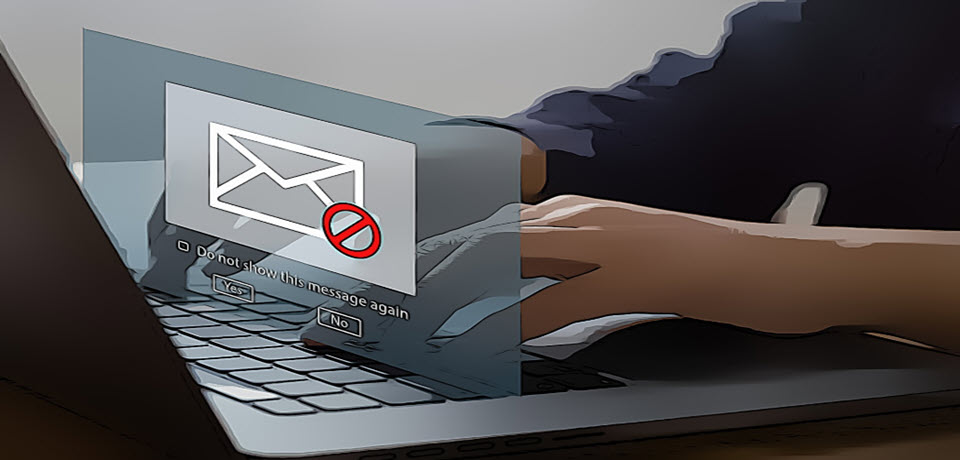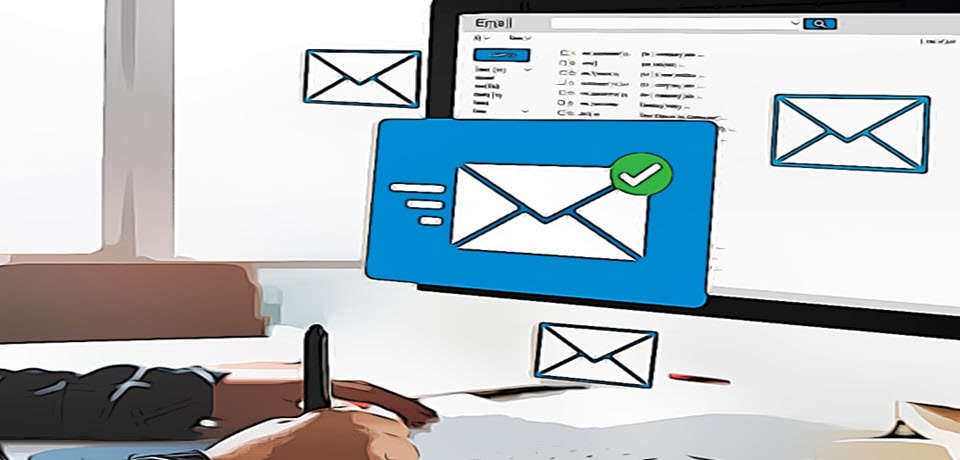- As we delve deeper into the digital age, protecting our online identity is more crucial than ever.
- One pressing question that often comes to our minds is, ‘Could it be possible for an individual to get my deactivated email account as their own and proceed to utilize it for their own purposes?
- In this article, we aim to shed light on this critical issue and help you understand the implications. Yep, let’s dig into the hilarious yet horrifying idea of email reincarnation!
Did You Know? Did you know that Email predates the Internet? It was, in fact, the need to connect computers to send and receive emails that eventually led to the development of the Internet.
The Risks of Abandoned Email Accounts: Can Others Claim and Use Your Closed Email Account?
Contents
1. Understanding the Email Closure
2. The Likelihood of Account Claiming
3. The Nightmares of Digital Identity Theft
4. Different Email Providers and their Recycle Policy
5. Defensive Measures – Your Shield Against Email Identity Theft
6. End Scene: The Last Word on Your Old Email’s Future
Understanding the Email Closure

Your email account is more than just a digital postbox. It’s the keeper of secrets, the revealer of spam, the custodian of cat pictures, and the bearer of emails claiming you’ve won lotteries in countries you can’t pronounce. But what happens when you decide it’s time for the digital swan song, and you send your email account into oblivion?
When you ‘terminate’ your email account, it’s not an immediate vanishing act, à la a bad magician at a kid’s party. Instead, most email service providers take your dearly departed account into a purgatory-like state. It’s like a limbo for deleted emails, a cosmic waiting room. Here, the account hangs around aimlessly, as deleted, but also not quite. This grace period varies with different providers and is a chance for you to awaken your email from its digital slumber if you happen to change your mind.
Think of this as your email account being a dramatic soap opera character, lying there apparently ‘dead,’ but actually waiting for the moment to spring back to life. “She’s alive!” Yes, your old email can return with all the gusto of a daytime TV resurrection.
Once the grace period lapses, the account is sent into the great beyond of the digital world, the Internet equivalent of a Viking funeral, just without the flaming arrows and boats. Now, this is where things get interesting. Depending on the email service provider, your ‘closed’ email could get a second lease on life, reincarnated into a new account. A spooky thought, isn’t it?
In our next section, we’ll delve into the odds of encountering your email’s digital doppelganger out in the wild. Prepare for a tale of identity, intrigue, and possibly, recycled usernames!
The Likelihood of Account Claiming
Now let’s talk reincarnation – not the spiritual type, but the email variety. Ever wondered what are the odds that your dearly departed email address might have a second life? Brace yourself, because it’s time to dive into the murky depths of email account recycling.
First off, it’s important to note that not all email providers are created equal, at least when it comes to their reincarnation policies. Think of it like the wild west of the digital world. Some towns (read: providers) have strict laws against name-duping, while others might be hosting a free-for-all rodeo.
For instance, Google, the sheriff of Email Town, has a stern policy. Once you’ve bid adieu to your Gmail account, it’s gone for good. It will not be recycled, reused, or resurrected. It won’t even haunt the digital corridors of the Internet. It’s a ghost town, folks – no tumbleweeds or echo of cowboy boots, just the silence of a username forever unused.
On the other hand, Yahoo, a bit of a maverick in this scenario, has been known to recycle email addresses. So, if you’re a Yahoo user who’s closed an account, don’t be too surprised if you spot your old address galloping around the World Wide Web with a new owner in the saddle. However, just because Yahoo can recycle email addresses doesn’t mean they always will. It’s like the lottery – except the prize is your old email address, and you really don’t want to win.
So, before you lose sleep worrying about your old email’s possible adventures without you, remember: the odds of someone claiming your old account are slim. Like, spotting-a-unicorn-in-the-wild slim. But as the subsequent sections will demonstrate, even unicorns can occasionally leave behind a mess that needs to be cleaned up. Time to saddle up and explore the wild, wild mess that is digital identity theft!
The Nightmares of Digital Identity Theft

Imagine this: you’re enjoying a peaceful evening, free from the stress of a buzzing email notification. Suddenly, from the digital realm, a friend messages, “Hey, I got an email from your old account about a fantastic deal on alpaca socks!” But wait, you didn’t send that email. Welcome, my friend, to the wild prairies of digital identity theft!
In the off chance that your old email account does get reclaimed and winds up sending advertisements for eccentric legwear, the possible consequences range from hilariously absurd to downright frightening.
First, let’s venture into the realm of the ridiculous. Imagine someone else getting bombarded with your favorite ‘Alien Sightings Weekly’ newsletter or the spam emails that promise vast riches from a prince in a country you’re pretty sure doesn’t exist. Imagine the confusion, the amusement, the sudden existential questions about the existence of extra-terrestrial life!
Now, let’s flip the coin to the darker side. Your reclaimed email address might also become the recipient of more sensitive information. We’re talking about password reset links, confidential attachments, or personal messages that were intended for you. Yikes! It’s like handing over the keys to your digital life, which in the wrong hands can lead to situations scarier than a horror movie marathon on a dark and stormy night.
That’s right, folks, we’re talking about identity theft, phishing scams, and other cyber nightmares that make the digital world feel like a haunted house. Suddenly, the ghost of your old email account doesn’t seem so harmless, does it?
But fear not, brave Internet traveler, for the next section shall arm you with knowledge to combat the ghouls of digital doppelgangers. Because knowledge, as they say, is power, and who doesn’t want to feel like a superhero in the saga of email security?
Different Email Providers and their Recycle Policy
Navigating through the world of email service providers can feel like being an adventurer on a quest. Each service provider – an inn on your journey – has its own charm, and more importantly, its own rules of conduct. Some are like prestigious establishments where once a room (read: username) is vacated, it’s sealed forever, haunted by the ghost of its past occupant. Others might give it a good dusting and pass it on to the next weary traveler.
1. Gmail (Google): As discussed in the above paragraph, if you delete a Google Account, you have a short amount of time (30 days) to recover it. After that, the account and all its data will be permanently deleted, and Google won’t be able to recover them. Furthermore, Google does not recycle usernames, which means the same username will not be available in the future for others either. So, Gmail is safe in that regard.
2. Outlook (Microsoft): If you close an Outlook.com account, it’s put in a queue for deletion. If you sign in during the waiting period, your account is reactivated. If you don’t sign in within 60 days, your account will be permanently deleted. And, just like Gmail, Outlook doesn’t recycle old email addresses and is safe.
3. Yahoo Mail (Yahoo): Once you close a Yahoo account, it waits for 90 days before permanently deleting it. During this period, the account can be restored by the original user. If the account is not restored within 90 days, it is permanently deleted and can be reclaimed by anyone. This can be a daunting situation for Yahoo users, as someone else may reclaim their old email account. Yup, not safe!
4. iCloud Mail (Apple): Once you delete your iCloud account, Apple will retain your account information for 30 days. During this time, you can restore your account if you change your mind. After 30 days, your account information will be permanently deleted and cannot be restored. Once deleted, accounts will not be recycled and the email address will remain out of circulation. So, iCloud Mail is safe in this regard.
5. AOL Mail (AOL): Your AOL Mail account information will be retained for 90 days after you delete your account. After this period, your account information will be permanently deleted and cannot be restored. Once deleted, anyone can reclaim your old email ID. So this is definitely not safe.
6. ProtonMail: After you delete your ProtonMail account, your account information will be kept for 30 days. Once that period ends, your account information will be permanently erased and cannot be recovered. ProtonMail also ensures that usernames are not reused, so the same username will not be available for others in the future. This is one of the reasons why ProtonMail is considered a safe option.
7. Zoho Mail: After deleting your Zoho Mail account, your information is kept for 30 days. If not restored within this period, it’s permanently deleted and cannot be recovered. Zoho may block the use of an email address linked to a deleted account. It is unclear whether Zoho recycles old email IDs.
8. Mail.com: Once you delete your Mail.com account, your account information will be kept for a duration of 60 days. During this period, all your emails, contacts, and other data will remain stored on Mail.com’s servers. However, after the 60-day timeframe, your account information will be permanently deleted and cannot be recovered. The recycling process of old email IDs by Mail.com remains unclear.
So there you have it, folks, a whirlwind tour of the email service provider landscape. It’s a world of contrasts and intrigue, where the policies of account reclamation can range from the ‘strictly no trespassing’ to the ‘come on in, the water’s fine.’ In the end, it all boils down to how each provider values user data and privacy, and how you, the user, play along.
Up next: a survival guide to the digital wilderness, complete with preventative measures and wise counsel. Stay tuned!
Defensive Measures – Your Shield Against Email Identity Theft

Alright, folks, let’s transform your digital security confusion into a set of actionable, easy-to-follow steps. These are your virtual shields against the possibility of someone else claiming your old email account:
1. Email Clean-Up: Before you say goodbye to your email account, make sure to clean it up. Delete or transfer all important emails. It’s like clearing out your locker before you leave school – you wouldn’t want to leave your favorite jacket behind!
2. Address Updates: Update your email address across all your online platforms. That way, you’re not leaving digital breadcrumbs that lead back to your old, inactive account. This step is like forwarding your mail when you move houses – you don’t want to miss out on those important letters, or in this case, emails.
3. Send Notifications: Notify your contacts about the closure of your email account. You don’t want your friends or family sending messages to your old account. Think of it as sending out moving notices, but instead of a new address, you’re sharing your new email.
4. Know Your Provider: Choose your email service provider wisely. Understand their policies on account closure and reclamation. Yes, it might be as exciting as watching grass grow, but it’s crucial to ensuring your digital safety.
There you have it, a practical guide to safeguarding your digital identity. Now, you can stride confidently in the virtual world, knowing that your old email accounts won’t come back to haunt you. Remember, a few simple preventative measures today can save you a ton of trouble tomorrow. Stay safe out there!
End Scene: The Last Word on Your Old Email’s Future
So, dear reader, we’ve journeyed through the wild world of email account closures, brushed against the specter of digital identity theft, and now, it’s time to tie up all those loose threads.
The chances of someone claiming your closed email account are skinnier than a garden snake after a diet. But, much like finding that same garden snake in your boots, the implications could be startling, awkward, and a tad terrifying. From the potential misadventures of your old newsletters reaching a new reader to the darker threats of confidential information breaches, the risks are as varied as a mixed bag of jelly beans.
Our tour of the email provider landscape has shown us one thing: the rules of the game are as diverse as the players. Some providers guard your old usernames like a dragon hoarding its gold, while others are more open to the idea of recycling. It’s a merry dance of policies, where every step can lead to a different outcome.
But fear not, my brave digital explorer! With the right set of tools – a good understanding of your provider’s policies, a thorough cleanup before closure, and notifying your contacts – you can navigate this landscape with the grace of a gazelle leaping across the savannah.
So, as we bid adieu to this tale of digital intrigue and adventure, remember, my fellow netizens: keep your friends close, your passwords closer, and your old email accounts closest – or, at least, make sure they won’t come back to surprise you!
Did You Know?
Did You Know that there are Legal Ramifications for knowingly accessing someone else’s email account, even if the account was closed and then recycled by the provider. It’s a violation of privacy and is generally considered unlawful.
Author: Nik is an experienced author with 14 years in software and tech, holding an IT Engineering degree and a Data Science Master's from Liverpool University. Disclaimer: This website's content is created by humans and refined by AI for better grammar, flow, and clarity.
